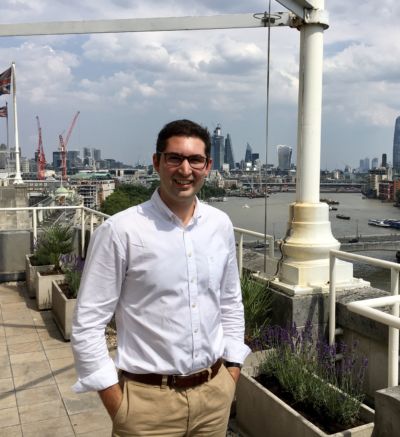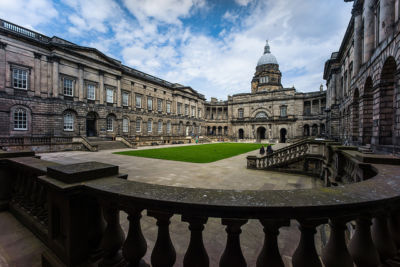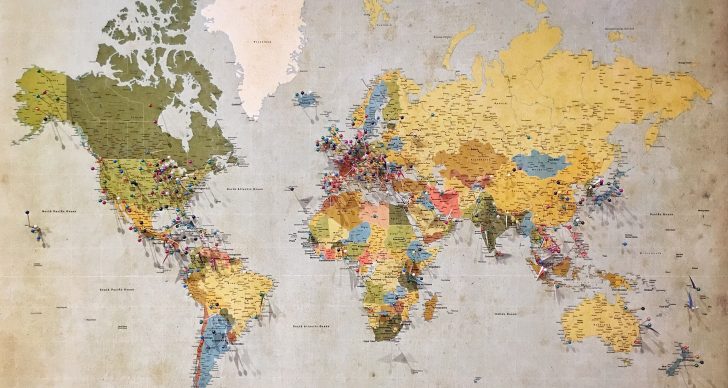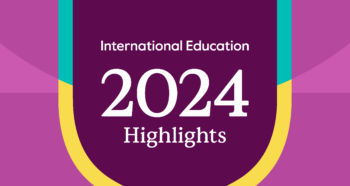Roshan Walkerley is part of the Cambridge International Global Recognitions team, leading our work with universities in the UK, Ireland and the Netherlands. Prior to joining Cambridge International in 2018, Roshan worked as a Student Recruitment Manager and Higher Education Adviser at the University of East Anglia. Roshan studied Environmental Sciences at the University of East Anglia, UK, and Macquarie University, Australia. Roshan loves travelling and is always busy planning his next trip or getting outside at the weekends, exploring the Norfolk coast and countryside.

I usually wake up at about 6:30 and travel into Cambridge by train from Norwich, which takes 90 minutes. This time on the train gives me a chance to scan the news for any developments or policy announcements that could impact our schools. I love watching the sun rise across the misty fens of the East of England.
My day then starts at the office around 09:00, looking at any emails and planning for my upcoming university visits. As part of the Global Recognitions team, I work closely with universities in the UK to ensure that Cambridge students from across the world have the smoothest possible access to the UK universities of their choice, regardless of which combination of our qualifications they have chosen to study.
We know that over 90% of Cambridge A Level students progress to university, with the UK as the leading destination. So it is crucial that we work closely with universities and colleges to brief them on our new qualifications, such as the Cambridge International Project Qualification (IPQ).
It is an interesting time for the Higher Education sector in the UK at the moment and many universities are looking to diversify their offering. Universities in England have received full parliamentary approval to expand their two-year degree provision and to charge a higher fee per year for these programmes. This will allow students to complete their studies a year earlier than traditional routes and save on living costs. Meanwhile, Lancaster University has joined the trend of opening new branch campuses overseas and has recently announced a new campus in Leipzig, Germany, in a bid to recruit more overseas applicants.
A couple of days a week, I travel to visit different universities around the UK. A few months ago, there were comments in the news about the comparability and standards of GCSEs and IGCSEs. I discuss this with all the universities I visit, and the response is always the same – UK universities accept the GCSE and IGCSE as equal and do not differentiate between them.
Recently, I attended the UCAS Annual Teachers and Advisers conference where the same issue was put to Directors of Admissions at the universities of Bath, Edinburgh and SOAS. The response from all three was that they assess candidates using a holistic approach, looking at achieved and predicted grades, as well as references and personal statements. Factors such as which exam board their qualifications are awarded by are not taken into account.

If I’m in the office, afternoons are often spent working on projects such as redeveloping our resources for schools – we have guides and videos explaining the university systems in different countries and have just relaunched our new Destination UK guide. I also spend lots of time on Skype, working with colleagues in the USA, South Africa, India, and Singapore to learn more about the work in those regions and share ideas on recognition. Our qualifications are already accepted by over 1400 institutions worldwide, but there’s always more to do!
With colleagues across Cambridge Assessment, I regularly liaise with universities as part of our Higher Education Consultative Committee, which includes around 20 university Heads of Admissions. Whereas UK-based qualifications have changed a lot in recent years, International GCSEs and A levels remain comparable and universities use them as equivalent on a grade-for-grade basis. Although feedback from the committee is that Cambridge qualifications continue to be well regarded and trusted by UK universities, we continue to work to build understanding and awareness of Cambridge programmes.
I usually head off around 5pm and use the train journey home to relax and listen to podcasts. Once back, I enjoy going for a post-work swim or exploring some of the great new venues opening across Norwich.
Working in recognitions allows me to visit some great university and college campuses throughout the UK and beyond. I look forward to working with the sector in the years ahead to ensure smooth progression and great opportunities for our Cambridge learners.
The Global Recognitions team is overseen by Kevin Ebenezer, who leads a team of eight Recognitions Managers. We have colleagues based in the USA, South Africa, India, China and Singapore, as well as Cambridge. This allows us to work with higher education providers in a wide range of popular destination countries for Cambridge learners.





